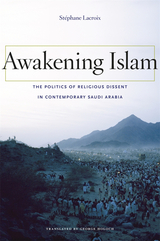
Amidst the roil of war and instability across the Middle East, the West is still searching for ways to understand the Islamic world. Stéphane Lacroix has now given us a penetrating look at the political dynamics of Saudi Arabia, one of the most opaque of Muslim countries and the place that gave birth to Osama bin Laden.
The result is a history that has never been told before. Lacroix shows how thousands of Islamist militants from Egypt, Syria, and other Middle Eastern countries, starting in the 1950s, escaped persecution and found refuge in Saudi Arabia, where they were integrated into the core of key state institutions and society. The transformative result was the Sahwa, or “Islamic Awakening,” an indigenous social movement that blended political activism with local religious ideas. Awakening Islam offers a pioneering analysis of how the movement became an essential element of Saudi society, and why, in the late 1980s, it turned against the very state that had nurtured it. Though the “Sahwa Insurrection” failed, it has bequeathed the world two very different, and very determined, heirs: the Islamo-liberals, who seek an Islamic constitutional monarchy through peaceful activism, and the neo-jihadis, supporters of bin Laden's violent campaign.
Awakening Islam is built upon seldom-seen documents in Arabic, numerous travels through the country, and interviews with an unprecedented number of Saudi Islamists across the ranks of today’s movement. The result affords unique insight into a closed culture and its potent brand of Islam, which has been exported across the world and which remains dangerously misunderstood.
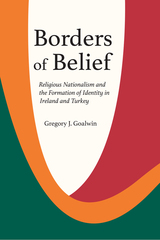
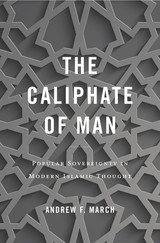
A political theorist teases out the century-old ideological transformation at the heart of contemporary discourse in Muslim nations undergoing political change.
The Arab Spring precipitated a crisis in political Islam. In Egypt Islamists have been crushed. In Turkey they have descended into authoritarianism. In Tunisia they govern but without the label of “political Islam.” Andrew March explores how, before this crisis, Islamists developed a unique theory of popular sovereignty, one that promised to determine the future of democracy in the Middle East.
This began with the claim of divine sovereignty, the demand to restore the sharīʿa in modern societies. But prominent theorists of political Islam also advanced another principle, the Quranic notion that God’s authority on earth rests not with sultans or with scholars’ interpretation of written law but with the entirety of the Muslim people, the umma. Drawing on this argument, utopian theorists such as Abū’l-Aʿlā Mawdūdī and Sayyid Quṭb released into the intellectual bloodstream the doctrine of the caliphate of man: while God is sovereign, He has appointed the multitude of believers as His vicegerent. The Caliphate of Man argues that the doctrine of the universal human caliphate underpins a specific democratic theory, a kind of Islamic republic of virtue in which the people have authority over the government and religious leaders. But is this an ideal regime destined to survive only as theory?
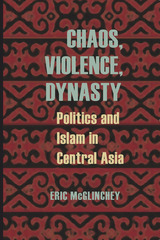
In the post-Soviet era, democracy has made little progress in Central Asia. In Chaos, Violence, Dynasty, Eric McGlinchey presents a compelling comparative study of the divergent political courses taken by Kyrgyzstan, Uzbekistan, and Kazakhstan in the wake of Soviet rule. McGlinchey examines economics, religion, political legacies, foreign investment, and the ethnicity of these countries to evaluate the relative success of political structures in each nation.
McGlinchey explains the impact of Soviet policy on the region, from Lenin to Gorbachev. Ruling from a distance, a minimally invasive system of patronage proved the most successful over time, but planted the seeds for current “neo-patrimonial” governments. The level of direct Soviet involvement during perestroika was the major determinant in the stability of ensuing governments. Soviet manipulations of the politics of Uzbekistan and Kazakhstan in the late 1980s solidified the role of elites, while in Kyrgyzstan the Soviets looked away as leadership crumbled during the ethnic riots of 1990. Today, Kyrgyzstan is the poorest and most politically unstable country in the region, thanks to a small, corrupt, and fractured political elite. In Uzbekistan, Islam Karimov maintains power through the brutal suppression of disaffected Muslims, who are nevertheless rising in numbers and influence. In Kazakhstan, a political machine fueled by oil wealth and patronage underlies the greatest economic equity in the region, and far less political violence.
McGlinchey’s timely study calls for a more realistic and flexible view of the successful aspects of authoritarian systems in the region that will be needed if there is to be any potential benefit from foreign engagement with the nations of Central Asia, and similar political systems globally.
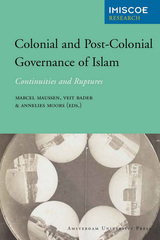
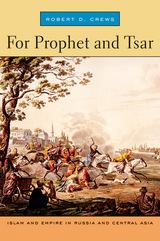
Russia occupies a unique position in the Muslim world. Unlike any other non-Islamic state, it has ruled Muslim populations for over five hundred years. Though Russia today is plagued by its unrelenting war in Chechnya, Russia’s approach toward Islam once yielded stability. In stark contrast to the popular “clash of civilizations” theory that sees Islam inevitably in conflict with the West, Robert D. Crews reveals the remarkable ways in which Russia constructed an empire with broad Muslim support.
In the eighteenth century, Catherine the Great inaugurated a policy of religious toleration that made Islam an essential pillar of Orthodox Russia. For ensuing generations, tsars and their police forces supported official Muslim authorities willing to submit to imperial directions in exchange for defense against brands of Islam they deemed heretical and destabilizing. As a result, Russian officials assumed the powerful but often awkward role of arbitrator in disputes between Muslims. And just as the state became a presence in the local mosque, Muslims became inextricably integrated into the empire and shaped tsarist will in Muslim communities stretching from the Volga River to Central Asia.
For Prophet and Tsar draws on police and court records, and Muslim petitions, denunciations, and clerical writings—not accessible prior to 1991—to unearth the fascinating relationship between an empire and its subjects. As America and Western Europe debate how best to secure the allegiances of their Muslim populations, Crews offers a unique and critical historical vantage point.
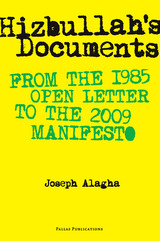
Despite the controversial reputation of Hizbullah in the West, and the significant role this powerful Islamist organization plays in Lebanese politics, there are few reliable, published English translations of the party’s primary documents. With this extensive work, Joseph Alagha seeks to remedy this problem and rectify the distortions and misrepresentations that have resulted from inaccurate translations.
Through privileged access to the party, Alagha was able to compile and meticulously translate a host of original primary documents, from the party’s 1985 Open Letter; through its eight clandestine conclaves from 1989 to 2009; to all of its election programs from 1992 to 2010, as well as all of the agreements, understandings, and pacts the party has ratified over the years; ending with the 2009 Political Manifesto. This firsthand portrait of Hizbullah’s metamorphosis, especially in the past decade, is complete with thorough footnotes, commentary, background information, chronology, and a detailed introductory chapter that maps the party’s transformation by analytically comparing the Open Letter with the 2009 Manifesto. This volume will be an invaluable companion for both scholars and policy makers.
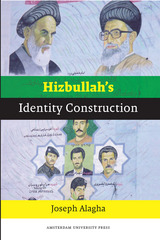
As the dominant political force in Lebanon and one of the most powerful post-Islamist organizations in the world, Hizbullah is a source of great controversy and uncertainty in the West. Despite the significant attention paid to this group by the media, the details of Hizbullah’s evolution have frequently confounded politicians—and even scholars. In this important study, Joseph Alagha, a scholar with unprecedented access to the organization, exhaustively and objectively analyzes Hizbullah’s historical evolution and offers a revolutionary new perspective on the political phenomenon of the organization.
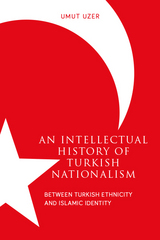
While predominantly a textual analysis of the primary sources written by the nationalists, this volume takes into account how political developments influenced Turkish nationalism and also tackles the question of how an ideology that began as a revolutionary, progressive, forward-looking ideal eventually transformed into one that is conservative, patriarchal, and nostalgic to the Ottoman and Islamic past. Between Islamic and Turkish Identity is the first book in any language to comprehensively analyze Turkish nationalism with such scope and engagement with primary sources; it aims to dissect the phenomenon in all its manifestations.
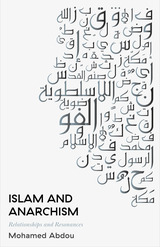
Discourse around Muslims and Islam all too often lapses into a false dichotomy of Orientalist and fundamentalist tropes. A popular reimagining of Islam is urgently needed. Yet it is a perhaps unexpected political philosophical tradition that has the most to offer in this pursuit: anarchism.
Islam and Anarchism is a highly original and interdisciplinary work, which simultaneously disrupts two commonly held beliefs - that Islam is necessarily authoritarian and capitalist; and that anarchism is necessarily anti-religious and anti-spiritual. Deeply rooted in key Islamic concepts and textual sources, and drawing on radical Indigenous, Islamic anarchistic and social movement discourses, Abdou proposes 'Anarcha-Islam'.
Constructing a decolonial, non-authoritarian and non-capitalist Islamic anarchism, Islam and Anarchism philosophically and theologically challenges the classist, sexist, racist, ageist, queerphobic and ableist inequalities in both post- and neo-colonial societies like Egypt, and settler-colonial societies such as Canada and the USA.

This book compares Islamic and Western political formulations, highlighting areas of agreement and disparity. Building on this analysis, the author goes on to show that political Islam offers a serious alternative to the dominant political system and ideology of the West.
Sabet argues that rather than leading to a "Clash of Civlizations" or the assimilation of Islam into the Western system, a positive process of interactive self-reflection between Islam and liberal democracy is the best way forward.
Beginning this process, Sabet highlights key concepts of Islamic political thought and brings them into dialogue with Western modernity. The resulting synthesis is essential reading for advanced undergraduate and graduate students of Islamic and Middle Eastern politics, political theory, comparative politics and international relations.
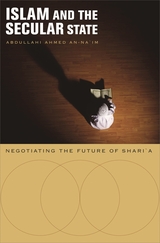
What should be the place of Shari‘a—Islamic religious law—in predominantly Muslim societies of the world? In this ambitious and topical book, a Muslim scholar and human rights activist envisions a positive and sustainable role for Shari‘a, based on a profound rethinking of the relationship between religion and the secular state in all societies.
An-Na‘im argues that the coercive enforcement of Shari‘a by the state betrays the Qur’an’s insistence on voluntary acceptance of Islam. Just as the state should be secure from the misuse of religious authority, Shari‘a should be freed from the control of the state. State policies or legislation must be based on civic reasons accessible to citizens of all religions. Showing that throughout the history of Islam, Islam and the state have normally been separate, An-Na‘im maintains that ideas of human rights and citizenship are more consistent with Islamic principles than with claims of a supposedly Islamic state to enforce Shari‘a. In fact, he suggests, the very idea of an “Islamic state” is based on European ideas of state and law, and not Shari‘a or the Islamic tradition.
Bold, pragmatic, and deeply rooted in Islamic history and theology, Islam and the Secular State offers a workable future for the place of Shari‘a in Muslim societies.
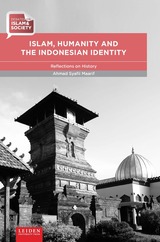
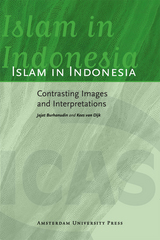

Will Saudi Arabia join the democratic wave in the Middle East? The uprisings and revolutions of 2011 do not, yet, seem to have affected the stability of the House of Saud, which remains secretive, highly repressive and propped up by the West.
The Islamic Utopia uses a range of sources including first-hand reporting and recently released WikiLeaks documents to examine Saudi Arabia in the decade after the 9/11 attacks, when King Abdullah’s 'reform' agenda took centre stage in public debate. It considers Saudi claims of 'exemption' from the democratic demands of the Arab Spring.
Andrew Hammond argues that for too long Western media and governments have accepted Saudi leaders' claims to be a buttress against jihadist Islam and that a new policy is needed towards the House of Saud.
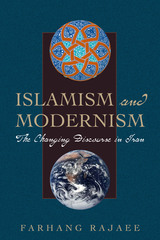
While many previous books have probed the causes of Iran's Islamic Revolution of 1979, few have focused on the power of religion in shaping a national identity over the decades leading up to it. Islamism and Modernism captures the metamorphosis of the Islamic movement in Iran, from encounters with Great Britain and the United States in the 1920s through twenty-first-century struggles between those seeking to reform Islam's role and those who take a hardline defensive stance.
Capturing the views of four generations of Muslim activists, Farhang Rajahee describes how the extremism of the 1960s brought more confidence to concerned Islam-minded Iranians and radicalized the Muslim world while Islamic alternatives to modernity were presented. Subsequent ideologies gave rise to the revolution, which in turn has fed a restructuring of Islam as a faith rather than as an ideology.
Presenting thought-provoking discussions of religious thinkers such as Ha'eri, Burujerdi, Bazargan, and Shari'ati, along with contemporaries such as Kadivar, Soroush, and Shabestari, the author sheds rare light on the voices fueling contemporary Islamic thinking in Iran. A comprehensive study of these interwoven aspects of politics, religion, society, and identity, Islamism and Modernism offers crucial new insight into the aftermath of the Iranian Constitutional Revolution fought one hundred years ago—and its ramifications for the newest generation to face the crossroads of modernity and Islamic discourse in modern Iran today.
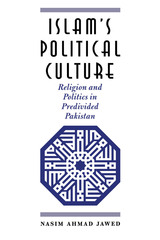
This book examines the political dimension of Islam in predivided Pakistan (1947-1971), one of the first new Muslim nations to commit itself to an Islamic political order and one in which the national debate on Islamic, political, and ideological issues has been the most persistent, focused, and rich of any dialogues in the contemporary Muslim world.
Nasim Jawed draws on the findings of a survey he conducted among two influential social groups—the ulama (traditional religious leaders) and the modern professionals—as well as on the writings of Muslim intellectuals. He probes the major Islamic positions on critical issues concerning national identity, the purpose of the state, the form of government, and free, socialist, and mixed economies.
This study contributes to an enhanced understanding of Islam's political culture worldwide, since the issues, positions, and arguments are often similar across the Muslim world. The empirical findings of the study not only outline the ideological backdrop of contemporary Islamic reassertion, but also reveal diversity as well as tensions within it.
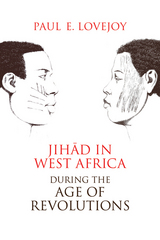
In Jihād in West Africa during the Age of Revolutions, a preeminent historian of Africa argues that scholars of the Americas and the Atlantic world have not given Africa its due consideration as part of either the Atlantic world or the age of revolutions. The book examines the jihād movement in the context of the age of revolutions—commonly associated with the American and French revolutions and the erosion of European imperialist powers—and shows how West Africa, too, experienced a period of profound political change in the late eighteenth through the mid-nineteenth centuries. Paul E. Lovejoy argues that West Africa was a vital actor in the Atlantic world and has wrongly been excluded from analyses of the period.
Among its chief contributions, the book reconceptualizes slavery. Lovejoy shows that during the decades in question, slavery expanded extensively not only in the southern United States, Cuba, and Brazil but also in the jihād states of West Africa. In particular, this expansion occurred in the Muslim states of the Sokoto Caliphate, Fuuta Jalon, and Fuuta Toro. At the same time, he offers new information on the role antislavery activity in West Africa played in the Atlantic slave trade and the African diaspora.
Finally, Jihād in West Africa during the Age of Revolutions provides unprecedented context for the political and cultural role of Islam in Africa—and of the concept of jihād in particular—from the eighteenth century into the present. Understanding that there is a long tradition of jihād in West Africa, Lovejoy argues, helps correct the current distortion in understanding the contemporary jihād movement in the Middle East, Afghanistan, Pakistan, and Africa.
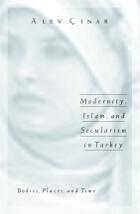
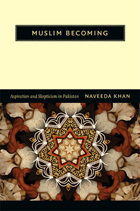
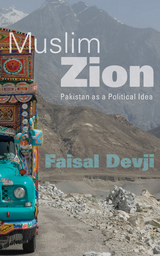
Pakistan, founded less than a decade after a homeland for India’s Muslims was proposed, is both the embodiment of national ambitions fulfilled and, in the eyes of many observers, a failed state. Muslim Zion cuts to the core of the geopolitical paradoxes entangling Pakistan to argue that India’s rival has never been a nation-state in the conventional sense. Pakistan is instead a distinct type of political geography, ungrounded in the historic connections of lands and peoples, whose context is provided by the settler states of the New World but whose closest ideological parallel is the state of Israel.
A year before the 1948 establishment of Israel, Pakistan was founded on a philosophy that accords with Zionism in surprising ways. Faisal Devji understands Zion as a political form rather than a holy land, one that rejects hereditary linkages between ethnicity and soil in favor of membership based on nothing but an idea of belonging. Like Israel, Pakistan came into being through the migration of a minority population, inhabiting a vast subcontinent, who abandoned old lands in which they feared persecution to settle in a new homeland. Just as Israel is the world’s sole Jewish state, Pakistan is the only country to be established in the name of Islam.
Revealing how Pakistan’s troubled present continues to be shaped by its past, Muslim Zion is a penetrating critique of what comes of founding a country on an unresolved desire both to join and reject the world of modern nation-states.
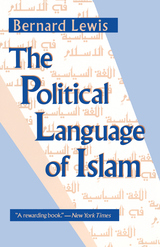
"Lewis's own style, combining erudition with a simple elegance and subtle humor, continues to inspire. In an era of specialization and narrowing academic vision, he stands alone as one who deserves, without qualification, the title of historian of Islam."—Martin Kramer, Middle East Review
"A superb effort at synthesis that presents all the relevant facts of Middle Eastern history in an eminently lucid form. . . . It is a book that should prove both rewarding and congenial to the Muslim reader."—S. Parvez Manzor, Muslim World Book Review
"By bringing his thoughts together in this clear, concise and readable account, [Lewis] has placed in his debt scholars and all who seek to understand the Muslim world."—Ann K. S. Lambton, Bulletin of the School of Oriental and African Studies
"[Lewis] constructs a fascinating account of the ways in which Muslims have conceived of the relations between ruler and ruled, rights and duties, legitimacy and illegitimacy, obedience and rebellion, justice and oppression. And he shows how changes in political attitudes and concepts can be traced through changes in the political vocabulary."—Shaul Bakhash, New York Review of Books
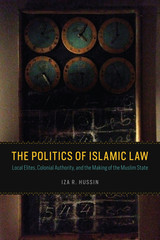
Drawing on extensive archival work in English, Arabic, and Malay—from court records to colonial and local papers to private letters and visual material—Hussin offers a view of politics in the colonial period as an iterative series of negotiations between local and colonial powers in multiple locations. She shows how this resulted in a paradox, centralizing Islamic law at the same time that it limited its reach to family and ritual matters, and produced a transformation in the Muslim state, providing the frame within which Islam is articulated today, setting the agenda for ongoing legislation and policy, and defining the limits of change. Combining a genealogy of law with a political analysis of its institutional dynamics, this book offers an up-close look at the ways in which global transformations are realized at the local level.
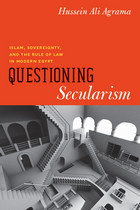
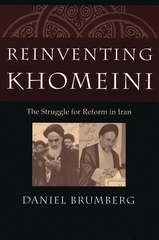
A complex figure, Khomeini was a fervent champion of Islam, but while he sought a Shi'ite vision of clerical rule under one Supreme Leader, he also strove to mesh that vision with an implicitly Western view of mass participatory politics. The intense magnetism and charisma of the ayatollah obscured this paradox. But reformers in Iran today, while rejecting his autocratic vision, are reviving the constitutional notions of government that he considered, and even casting themselves as the bearers of his legacy. In Reinventing Khomeini, Brumberg proves that the ayatollah is as much the author of modern Iran as he is the symbol of its fundamentalist past.
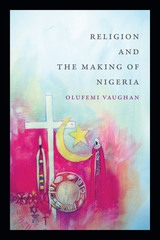
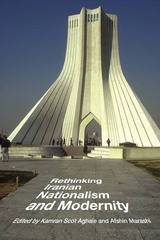
While recent books have explored Arab and Turkish nationalism, the nuances of Iran have received scant book-length study—until now. Capturing the significant changes in approach that have shaped this specialization, Rethinking Iranian Nationalism and Modernity shares innovative research and charts new areas of analysis from an array of scholars in the field.
Delving into a wide range of theoretical and conceptual perspectives, the essays—all previously unpublished—encompass social history, literary theory, postcolonial studies, and comparative analysis to address such topics as:
- Ethnicity in the Islamic Republic of Iran
- Political Islam and religious nationalism
- The evolution of U.S.-Iranian relations before and after the Cold War
- Comparing Islamic and secular nationalism(s) in Egypt and Iran
- The German counterrevolution and its influence on Iranian political alliances
- The effects of Israel’s image as a Euro-American space
- Sufism
- Geocultural concepts in Azar’s Atashkadeh
Interdisciplinary in essence, the essays also draw from sociology, gender studies, and art and architecture. Posing compelling questions while challenging the conventional historiographical traditions, the authors (many of whom represent a new generation of Iranian studies scholars) give voice to a research approach that embraces the modern era’s complexity while emphasizing Iranian nationalism’s contested, multifaceted, and continuously transformative possibilities.
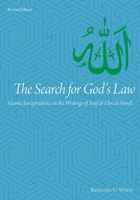
Weiss’s new introduction provides an overview of Amidi’s jurisprudence that facilitates deeper comprehension of the challenging dialectic of the text. This edition includes an in-depth analysis of the nature of language and the ways in which it mediates the law, while shaping it at the same time. An updated index has been added.
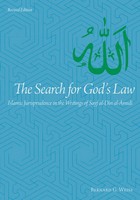
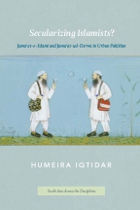
Secularizing Islamists? provides an in-depth analysis of two Islamist parties in Pakistan, the highly influential Jama‘at-e-Islami and the more militant Jama‘at-ud-Da‘wa, widely blamed for the November 2008 terrorist attack in Mumbai, India. Basing her findings on thirteen months of ethnographic work with the two parties in Lahore, Humeira Iqtidar proposes that these Islamists are involuntarily facilitating secularization within Muslim societies, even as they vehemently oppose secularism.
This book offers a fine-grained account of the workings of both parties that challenges received ideas about the relationship between the ideology of secularism and the processes of secularization. Iqtidar particularly illuminates the impact of women on Pakistani Islamism, while arguing that these Islamist groups are inadvertently supporting secularization by forcing a critical engagement with the place of religion in public and private life. She highlights the role that competition among Islamists and the focus on the state as the center of their activity plays in assisting secularization. The result is a significant contribution to our understanding of emerging trends in Muslim politics.
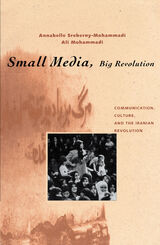
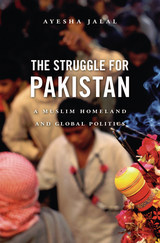
Established as a homeland for India’s Muslims in 1947, Pakistan has had a tumultuous history. Beset by assassinations, coups, ethnic strife, and the breakaway of Bangladesh in 1971, the country has found itself too often contending with religious extremism and military authoritarianism. Now, in a probing biography of her native land amid the throes of global change, Ayesha Jalal provides an insider’s assessment of how this nuclear-armed Muslim nation evolved as it did and explains why its dilemmas weigh so heavily on prospects for peace in the region.
“[An] important book…Ayesha Jalal has been one of the first and most reliable [Pakistani] political historians [on Pakistan]…The Struggle for Pakistan [is] her most accessible work to date…She is especially telling when she points to the lack of serious academic or political debate in Pakistan about the role of the military.”
—Ahmed Rashid, New York Review of Books
“[Jalal] shows that Pakistan never went off the rails; it was, moreover, never a democracy in any meaningful sense. For its entire history, a military caste and its supporters in the ruling class have formed an ‘establishment’ that defined their narrow interests as the nation’s.”
—Isaac Chotiner, Wall Street Journal
READERS
Browse our collection.
PUBLISHERS
See BiblioVault's publisher services.
STUDENT SERVICES
Files for college accessibility offices.
UChicago Accessibility Resources
home | accessibility | search | about | contact us
BiblioVault ® 2001 - 2024
The University of Chicago Press









